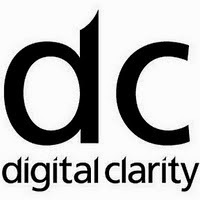Are
you ready for a new website? Not straight away! Any good web design agency will
want to discuss your website in considerable depth before they set to work
creating it. You'll need to provide a brief that your web design agency can
work from, so what questions should you ask and answer to make the process more
efficient?
What do you want your website to do?
Your website isn't there just for show. It should be fulfilling your goals. For that to happen, your web designer needs to know what your goals actually are. Do you want people to make a purchase? Should people call you? Would you prefer for people to fill in a form so that you can contact them at a later date, or are you trying to get people to subscribe to your newsletter?
What do you want and need your website to include?
Some things on your website will be essentials, and some will not be necessary though you might like to have them. Your website can be as creative as you like if your budget stretches, but at the same time your chosen web design agency should be confident enough to tell you if you're sacrificing ease of use and making your website more confusing by trying to include too much. Likewise, if your budget isn't endless then you might want to think about what you can afford to leave out in order to keep costs lower.
If you have an existing website, look at what works and what doesn't?
Assuming that you already have a website, you should be aware of what's working and what isn't. Provide this information to your web design agency so that they can replicate the good parts on your new website. Anything that hasn't proven to be successful can be completely left out or modified and improved.
How much control do you want?
Do you want to be able to edit your website? What control features and content management system would you like to use? Some web design agencies specialise in certain content management systems, such as Joomla or Wordpress, whilst some can create a bespoke system to suit your specific needs if that's what you'd prefer.
Do you have other specialists that you'd like to involve?
Your web design agency might offer a full service product, or be able to recommend other professionals, but you're also able to find your own copywriters, graphic designers and other experts. Giving your web design agency the contact details of anyone else that's involved can help them to work together efficiently.
What do you want your website to do?
Your website isn't there just for show. It should be fulfilling your goals. For that to happen, your web designer needs to know what your goals actually are. Do you want people to make a purchase? Should people call you? Would you prefer for people to fill in a form so that you can contact them at a later date, or are you trying to get people to subscribe to your newsletter?
What do you want and need your website to include?
Some things on your website will be essentials, and some will not be necessary though you might like to have them. Your website can be as creative as you like if your budget stretches, but at the same time your chosen web design agency should be confident enough to tell you if you're sacrificing ease of use and making your website more confusing by trying to include too much. Likewise, if your budget isn't endless then you might want to think about what you can afford to leave out in order to keep costs lower.
If you have an existing website, look at what works and what doesn't?
Assuming that you already have a website, you should be aware of what's working and what isn't. Provide this information to your web design agency so that they can replicate the good parts on your new website. Anything that hasn't proven to be successful can be completely left out or modified and improved.
How much control do you want?
Do you want to be able to edit your website? What control features and content management system would you like to use? Some web design agencies specialise in certain content management systems, such as Joomla or Wordpress, whilst some can create a bespoke system to suit your specific needs if that's what you'd prefer.
Do you have other specialists that you'd like to involve?
Your web design agency might offer a full service product, or be able to recommend other professionals, but you're also able to find your own copywriters, graphic designers and other experts. Giving your web design agency the contact details of anyone else that's involved can help them to work together efficiently.





